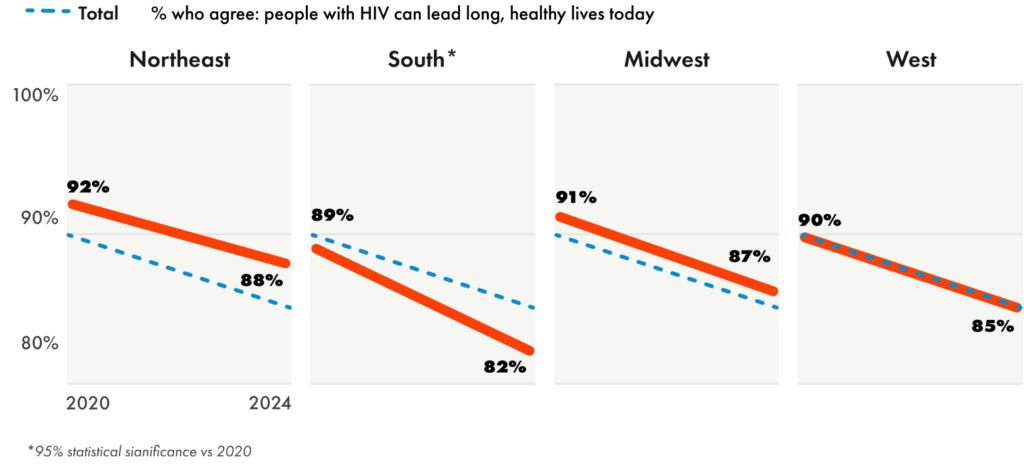Southern Spotlight
In 2021, the South accounted for more than half (52%) of new HIV diagnoses. In partnership with the Gilead COMPASS Initiative and in response to the Southern HIV epidemic, GLAAD and Gilead have been partners since 2019 in this important work to reduce HIV stigma, and understand comfortability, media exposure, and trends related to HIV stigma. In our fifth year of the State of HIV Stigma report we look at not only the trends in the United States as a whole, but in the Southern U.S.. Below are observed changes in the data in the Southern U.S.
Estimated HIV Diagnoses in the US by Region, 2021
Among people aged 13 and older
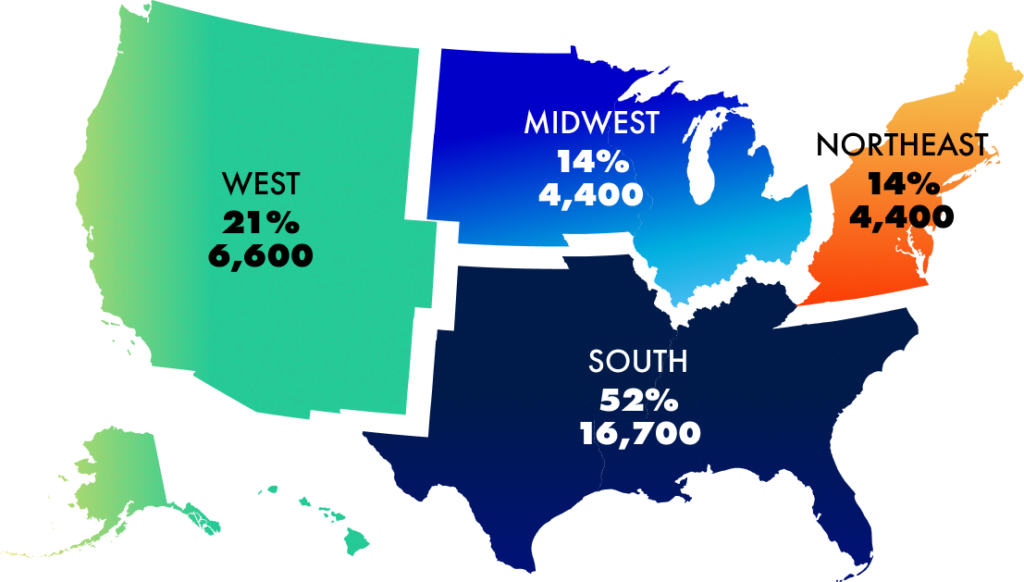
Knowledge of HIV is Stable in the Southern U.S.
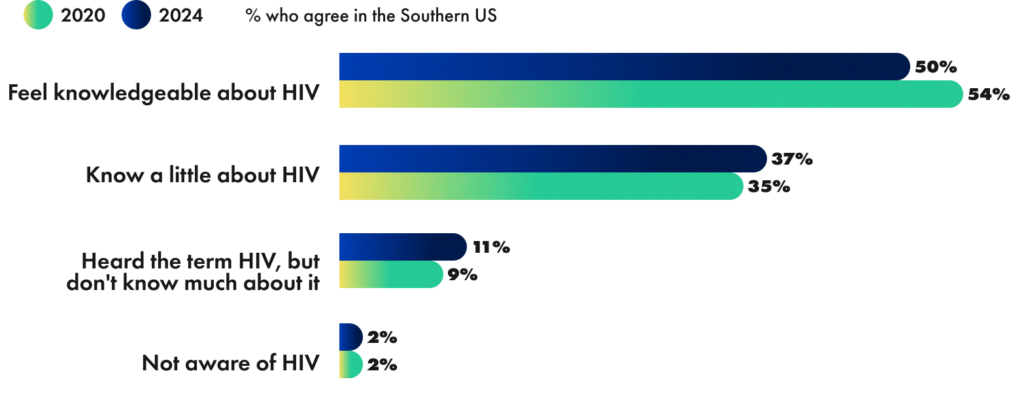
Comfortability in the South is Stable
Comfortability interacting with a doctor, dentist, or medical professional living with HIV has increased.
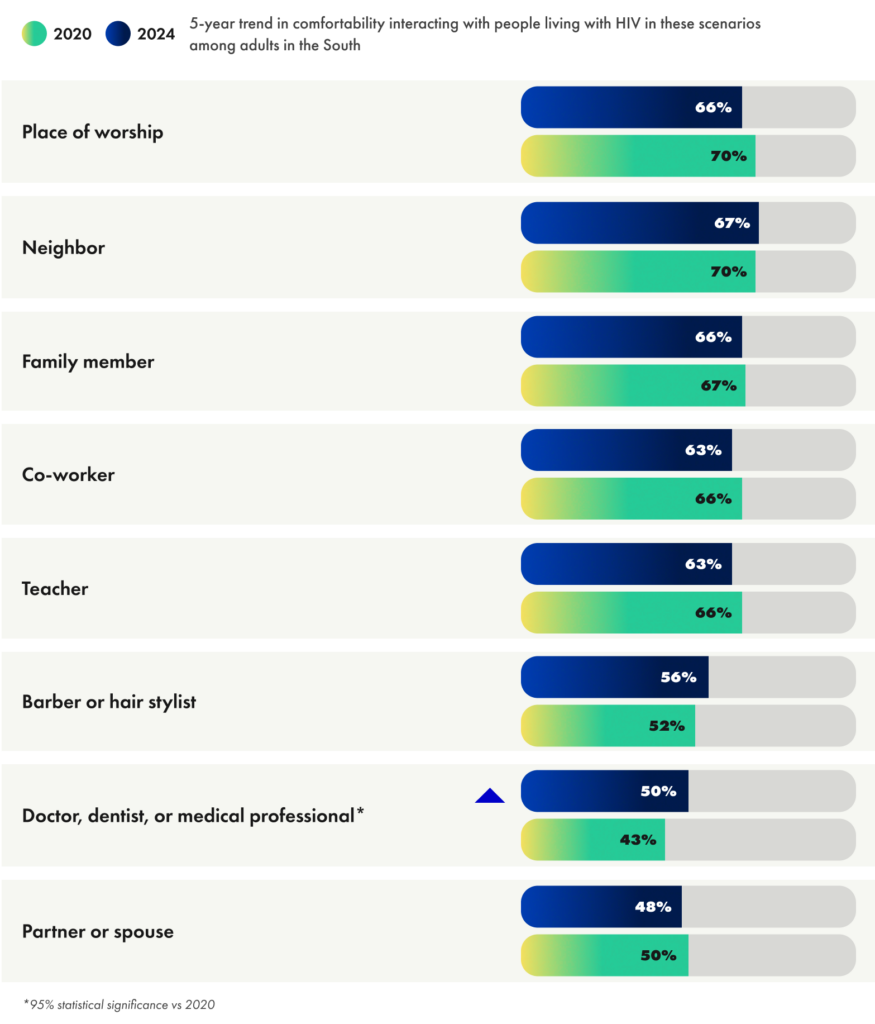
Decreases Seen in the Belief that Stigma Around HIV still Exists in the South and the Midwest
There has been a significant decline in the belief that stigma around HIV still exists over five years in the Southern U.S., from 87% in 2020 to 82% in 2024. The South and Midwest are the only two regions to see a statistically significant decline.
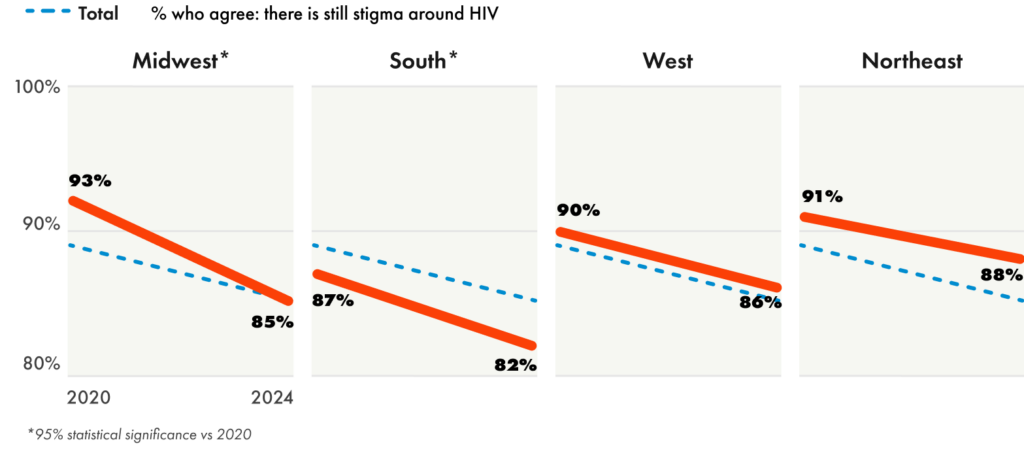
People Living with HIV Can and Do Lead Long, Healthy Lives
There has been a significant decrease in Americans in the Southern U.S. agreeing that people living with HIV can lead long, healthy lives today, from 89% in 2020 to 82% in 2024.
